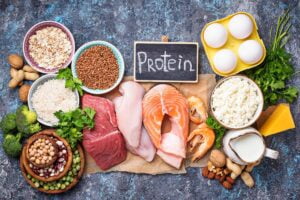ButSpeak.com
News which Matters.

Groundbreaking research from UBC reveals individualized insulin responses to proteins and fats, paving the way for personalized diabetes treatments and dietary guidance.
A groundbreaking study from the University of British Columbia (UBC) has revealed that insulin production can be highly individualized, with some people responding more to proteins and fats than to carbohydrates. This discovery challenges long-held beliefs and paves the way for tailored dietary treatments for various health conditions, including diabetes.
Insulin, a hormone produced by the pancreas, plays a critical role in managing blood sugar levels by enabling cells to absorb glucose for energy. Traditionally, glucose from carbohydrates has been considered the primary driver of insulin secretion. However, the effects of proteins and fats on insulin production have remained relatively underexplored until now.
The UBC researchers conducted the first large-scale study comparing how different individuals produce insulin in response to each of the three macronutrients: carbohydrates, proteins, and fats. The study found significant variability, with some people showing a stronger insulin response to proteins and fats than to glucose.
“Glucose is the well-known driver of insulin, but we were surprised to see such high variability, with some individuals showing a strong response to proteins, and others to fats, which had never been characterized before,” said James Johnson, a professor of cellular and physiological sciences at UBC and co-corresponding author of the study. “Insulin plays a major role in human health, in everything from diabetes, where it is too low, to obesity, weight gain, and even some forms of cancer, where it is too high. These findings lay the groundwork for personalized nutrition that could transform how we treat and manage a range of conditions.”
Between 2016 and 2022, the researchers measured insulin secretion in response to carbohydrates (glucose), proteins (amino acids), and fats (fatty acids) from pancreatic islet cells taken from 140 deceased male and female donors, who reflected the general population. Comprehensive protein and gene expression analysis was performed on the cells.
While, as expected, the majority of donor cells showed the highest insulin response to glucose, a surprising 9% of cells had amino acid responses, and 8% had fatty acid responses that were larger than their glucose-stimulated insulin responses.
“This research challenges the long-held belief that fats have negligible effects on insulin release in everyone,” said Jelena Kolic, a research associate in the Johnson Lab at UBC and the study’s lead and co-corresponding author. “With a better understanding of a person’s individual drivers of insulin production, we could potentially provide tailored dietary guidance that would help people better manage their blood sugar and insulin levels.”
The study also examined islet cells from donors with type 2 diabetes, revealing a reduced insulin response to glucose but an intact response to proteins. This finding suggests that protein-rich diets could offer therapeutic benefits for type 2 diabetes patients, highlighting the need for further research into protein-stimulated insulin secretion.
In future, genetic testing could be used to determine whether someone’s insulin response is triggered by a particular nutrient, the researchers say. In the meantime, they hope to continue their research by conducting clinical studies in healthy people and those with type 2 diabetes to test the insulin response to macronutrients in a real-world setting.
The study was published in the journal Cell Metabolism, which you can access here.